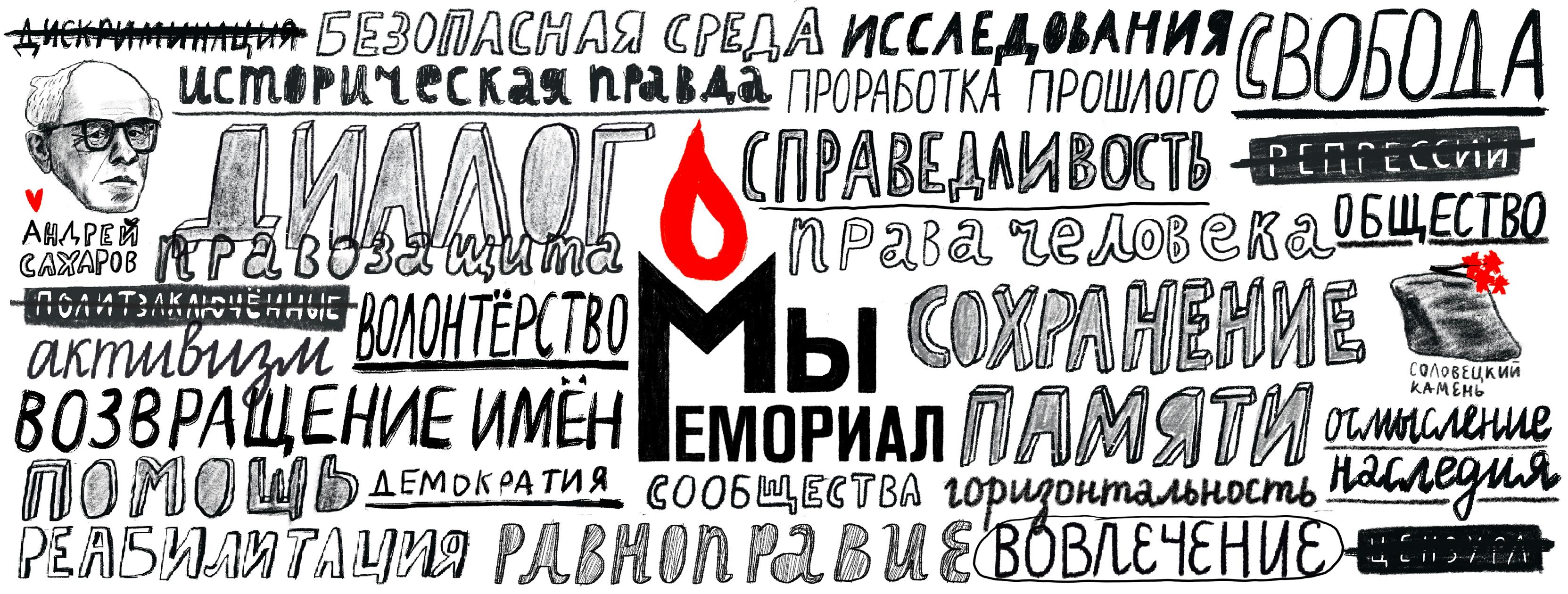The European Network Remembrance and Solidarity is dedicated to fostering an open dialogue on 20th-century history and supporting independent historical research. Therefore the ENRS expresses its deep concern with the recent attempts to shut down the International Memorial Society. Memorial is an exceptional organisation that aims to awaken and preserve the memory of political persecutions in the Soviet Union as one of its main goals.
Since its establishment in the years of perestroika, Memorial has run countless educational and research projects as well as other initiatives to commemorate the victims of totalitarian regimes. The organisation has gathered documents, photographs and manuscript memoirs from the victims of persecution and their families and has created archives containing more than 60,000 personal files. Memorial’s influence extends beyond the borders of the former Soviet Union, with an impact on social memory and remembrance practices across Europe. The organisation has received a number of awards and nominations in recognition of its work, including being nominated for a Nobel Peace Prize.
The values Memorial upholds are similar to these guiding the activities of the ENRS. We believe an open dialogue on 20th-century history and independent historical research are crucial in building a peaceful future for Europe. We are proud to have had the opportunity to cooperate with members of Memorial on several occasions, including Alexandra Polivanova’s participation in the debate ‘How to narrate the history of Europe’ in 2018 (Florence).
Memorial contributes greatly to creating a European culture of remembrance. That is why we call on individuals, institutions and governments to stand in support of Russia’s most recognised organisation dealing with history and memory.
ENRS Steering Committee
Dr Ján Pálffy (Slovakia)
Dr Florin Abraham (Romania)
Prof. Jan Rydel (Poland)
Dr Réka Földváryné Kiss (Hungary)
Prof. Matthias Weber (Germany)
ENRS Director
Rafał Rogulski
Members of ENRS Assemblies
Prof. Peter Haslinger, Herder Institute of Historical Research on East-Central Europe, ENRS Academic Council (Germany)
Prof. Catherine Horel, CNRS (CETOBAC), ENRS Editorial Board (France)
Prof. Dušan Kováč, ENRS Editorial Board (Slovakia)
Sergei Metlev, Estonian Institute of Historical Memory, ENRS Advisory Board (Estonia)
Prof. Andrzej Nowak, Jagiellonian University/Polish Academy of Sciences, ENRS Academic Council (Poland)
Prof. Attila Pók, Hungarian Academy of Sciences, ENRS Academic Council (Hungary)
Prof. Marcela Sălăgean, Babeș-Bolyai University in Cluj-Napoca, ENRS Advisory Board (Romania)
Johannes Schraps, Member of the German Bundestag, ENRS Academic Council (Germany)
Prof. Malkhaz Toria, Ilia State University, ENRS Academic Council (Georgia)
Dr Oldřich Tůma, Institute of Contemporary History of the Czech Academy of Sciences, ENRS Academic Council (Czech Republic)
Prof. Jay Winter, Yale University, ENRS Editorial Board (USA)
